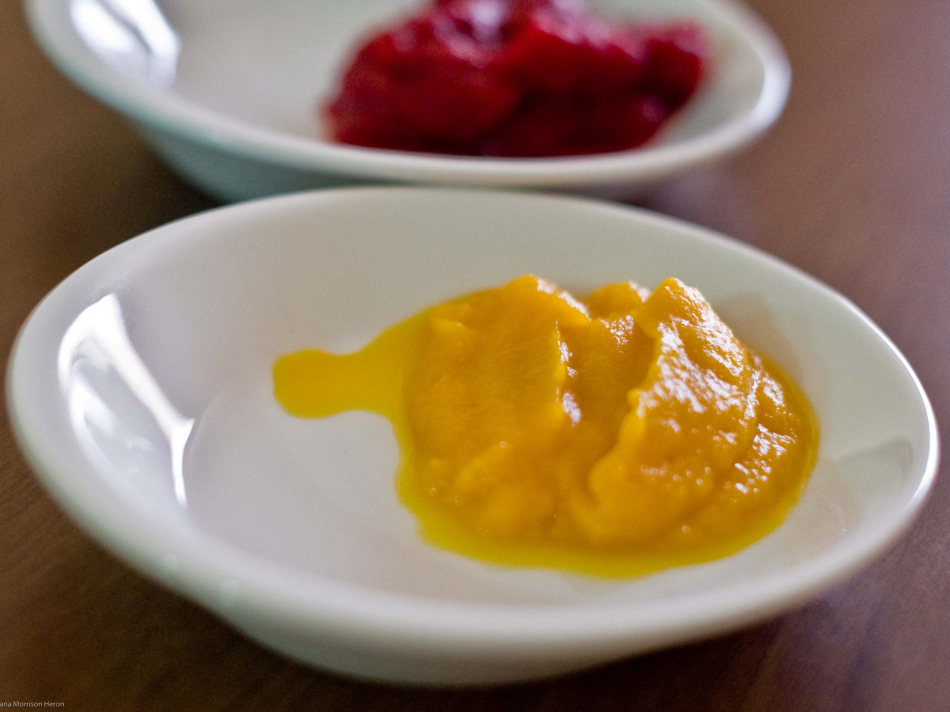Infant and new born nutrition
Once considered essential for infants health, breast-feeding is no longer the only way of feeding babies.

România Internațional, 04.12.2013, 13:26
Statistics show that 136.7 million babies are born annually across the globe, but only 32.6% are exclusively breastfed. More and more women choose not to breastfeed their newborns, either because of health problems or because milk powder is so widely available and more convenient. We talked about the physical and psychological difficulties of breastfeeding with Maria, who breastfed her baby boy for one and a half years:
“Breastfeeding for such a long time creates a strong dependence between mother and baby, which sometimes prevents babies from becoming independent earlier. In my case, because of excessive breastfeeding, my baby had problems assimilating proteins and iron. However, I don’t think introducing milk powder will help much. Anyway I recommend weaning babies when they are 1 year old. One year of breastfeeding is enough. I also recommend adding other foods when babies are 4 or 5 months old, while making sure they get enough proteins.”
In an attempt to help her baby overcome his anemia, Maria also fed him canned food she bought from supermarkets and pharmacies:
“He ate this kind of food for a while, then stopped. I don’t know if I should trust canned baby food, but apparently it is safe and contains organic ingredients. However, there’s no way of knowing precisely what they contain.”
Alina, the mother of another one-year old boy is still breastfeeding her baby although she was not encouraged to do so while she was in the maternity hospital:
“I know they gave my baby powdered milk in the hospital, and because he wasn’t hungry anymore, he refused breast milk. Breastfeeding is a big psychological challenge, but luckily, I had the moral support of my family. You experience so many new symptoms and pains, but I managed to overcome them and continue to breastfeed my baby, given that he also had some health problems”.
Alina started diversifying her baby’s food when he was 6 months old, but she did not give him canned food from the supermarket, instead she cooked it herself:
“Home made food is much safer. I only used canned baby food when we had to go on a longer trip and took the baby along.”
According to a study carried out in 2011 by the Institute for the Protection of Mothers and Babies in partnership with the Healthcare Ministry and UNICEF Romania, only 12.6% of women breastfeed their babies exclusively, this percentage being one of the lowest in Europe. Surprisingly, this percentage is even lower in countryside than in the urban areas. Voica Popa, an expert in child protection who works for UNICEF Romania, explains:
“Unfortunately, women living in the countryside have access to little information in the period before and after giving birth. There are many women who never go to a specialist doctor during their pregnancy. However, it is important for a woman to know how to feed and take care of her baby from the very moment she finds out she is pregnant.”
It is difficult to explain why the breastfeeding culture is disappearing in the countryside and why healthy traditional habits related to infant feeding are being abandoned, even in the rural areas. Voica Popa:
“The problem is not only the elimination of breast milk, but the use of products that are aggressively advertised and recommended for babies under 6 months, who should in fact be breastfed exclusively. Gradual diversification of food should start after 6 months. Our study shows that there are babies in Romania who at 7 or 8 months already eat fries. At this age they should be eating fruit. Apples, which are common in the countryside, have been replaced with bananas, while preserved vegetables have replaced fresh vegetables from the garden. This paradox is caused by the lack of information and education”.
For this situation to improve, the European Union has recently passed a directive that regulates the labeling of foodstuffs for children as well as the content of powdered milk. Romanian Euro MP, Daciana Sarbu, was one of the supporters of this directive that better regulates the content of baby food traded on the single market:
“Consumers will know very clearly what the canned baby food contains and what ingredients were used. Also, all advertisements for baby food will be modified, the purpose of the directive being to encourage breastfeeding. I think people should become aware of the importance of natural food. I would like these things to be better explained to people, who only use advertisements and television as their main source of information. It is difficult to change this because people lead busy and hectic lives and use convenient sources to get their information from.”
With the recent emergence of a number of websites about breastfeeding and the launch of campaigns such as World Breastfeeding Week held at the beginning of August, Daciana Sarbu is optimistic that the level of public information will improve in the future.






























